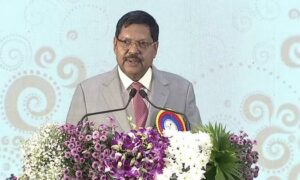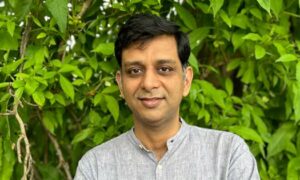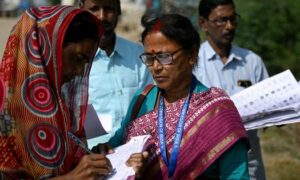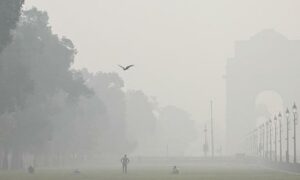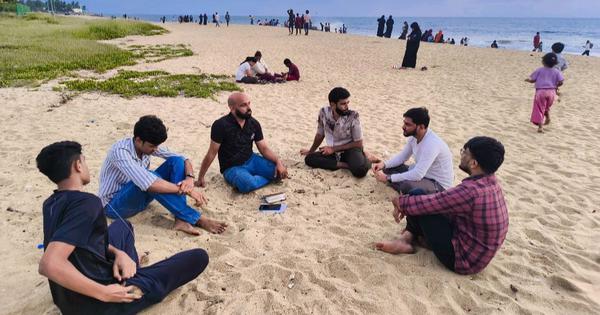
When I set off from Delhi on October 10, World Mental Health Day, on a solo motorcycle journey to Kannur in Kerala titled Ride for Mental Health: Beyond the Stigma, I imagined my 3,200-km ride would be an awareness campaign. It soon became something deeper: a listening journey across India’s emotional landscape.
Along my journey, I began not only to talk about mental health but also to understand the social and political foundations of distress unfolding across regions, communities and everyday lives.
Over 26 days, I travelled through Rajasthan, Gujarat, Maharashtra, Goa, Karnataka, and Kerala, concluding at the Wadihuda Institute of Research and Advanced Studies in Kannur. I conducted 10 public sessions, 30 group discussions and held hundreds of conversations with students, teachers, activists, journalists and citizens from varied backgrounds.
Altogether, I spoke to more than 1,000 people.
Nearly 197 million Indians live with mental disorders, including 45 million with depression. Almost everyone I spoke to was struggling with distress personally or could name someone they knew who was. This crisis sits quietly at the centre of Indian life.
Each stop revealed the same pattern: a steady erosion of mental well-being under the weight of economic precarity, social solitude, digital misinformation, gendered violence and political fear.
When fatigue becomes political
From Delhi to Kerala, each leg of the journey exposed how deeply politics, economy and identity shape mental health in India.
In Jaipur on October 11, during a meeting with the People’s Union for Civil Liberties, activists spoke not of campaigns or policy but of exhaustion. “We fight for justice but who talks about our mental health?” one person said. “The constant surveillance and intimidation consume us.”
That moment reframed activism as emotional labour that demands empathy and endurance.
At the Right to Information Festival in Beawar in Rajasthan on October 12, a professor observed, “We treat mental health as an individual issue when it’s actually structural.” His words captured what became a recurring realisation along the route: distress in India is social long before it is psychological.
In Udaipur, discussions at the School for Democracy revealed how modern work culture has redefined connection. “We work with people but no longer talk to them,” one participant said. “Social media connects us, yet empties us.” Later, in coastal Karnataka, an advocate echoed this unease: “People have stopped trusting even conversation.”
A pattern became clear: there is a fear of state surveillance and social judgment. It silenced dissent, numbed empathy and made vigilance a way of life. Near Udaipur, a small business owner put it bluntly: “Earlier, people suffered because of karma, now they suffer because of politicians.”
Fear, like fatigue, is a shared condition – the background against which ordinary life now unfolds.
The economics of exhaustion
The stop in Anand, Gujarat, on October 18 was unplanned. Weary from the road, I stopped at a small lodge where a local man spoke of suicides in his community. “People used to feel pressured, but now they take their lives,” he said. “Five from my circle have done so. One man recently jumped in front of a train, leaving behind his wife and daughter.”
When asked why, he replied, “It began with demonetisation – markets collapsed. Then Covid came and everything shut down. People lost jobs, borrowed money for starting a business, and worked longer hours just to survive. Earlier, we worked to live well. Now we work just to live.”
His story echoed across my journey – the creeping anxiety of financial fragility. In towns like Anand, where livelihoods depend on daily wages and informal work, debt and uncertainty have eroded family ties. Here, mental distress is a structural burden resulting from the economics of survival.
Social solitude
If exhaustion is economic, loneliness is its social twin. Across cities and small towns, people described shrinking spaces for companionship and care.
In Udaipur, an activist said, “We are surrounded by people and remain lonely.” In Mumbai, at an old-age home, residents spoke of longing for company. “Visitors make us feel seen,” one elderly man said. Even caregivers admitted their own fatigue: “We give, but we don’t receive.”
During the final sessions at Aliya Arabia College and WIRAS on November 4, students and teachers reflected on the culture of constant competition. “We discuss grades and placements, never loneliness,” a professor admitted.
Social solitude has become the defining mood of contemporary India where people live close yet feel far removed, where they’re connected online, but emotionally adrift.
This paradox of being digitally connected but emotionally isolated recurred across the journey. The platforms meant to bring people together now amplify anxiety, polarisation, and mistrust.
Manufactured hate
Across India, digital spaces emerged as both connectors and corrosive forces. Social media, many said, brings visibility but also breeds hostility.
In Beawar, a consultant reflected on the effect of online propaganda. “There isn’t a single Muslim in my village, yet people hate them because of what they see online,” he said. “Hatred is manufactured and internalised.”
A teacher in Udaipur added, “People aren’t naturally radical – they are conditioned to be.” Journalists and advocates in Karnataka said news consumption now provokes anxiety more than awareness. “We scroll for updates and end up absorbing hate,” one reporter admitted.
The relentless churn of outrage and misinformation has produced a collective, emotional fatigue. Fear, suspicion and bitterness have become reflexes, blurring the line between public discourse and private unease.
The erosion of trust, both online and offline, particularly burdens women, who face targeted abuse in digital spaces but also shoulder the hidden burden of emotional labour and care in their homes.
Gendered violence
From Rajasthan’s villages to Kerala’s campuses, women described the invisible emotional and physical tasks they carry out, tending to the pain of others while suppressing their own.
In Mumbai on October 25, overworked caregivers in an orphanage described their exhaustion “We are told care is love, but love without rest becomes punishment.”
Young women spoke candidly about toxic relationships and marital pressure. “We’re taught to adjust even when it hurts,” one said. Emotional abuse, she noted, leaves no visible scars.
People in Delhi and Kerala echoed this, describing controlling marriages and gender-based violence as major mental health concerns. Yet silence, they said, is still socially rewarded. Gendered distress in India is normalised, passed quietly between generations as endurance.
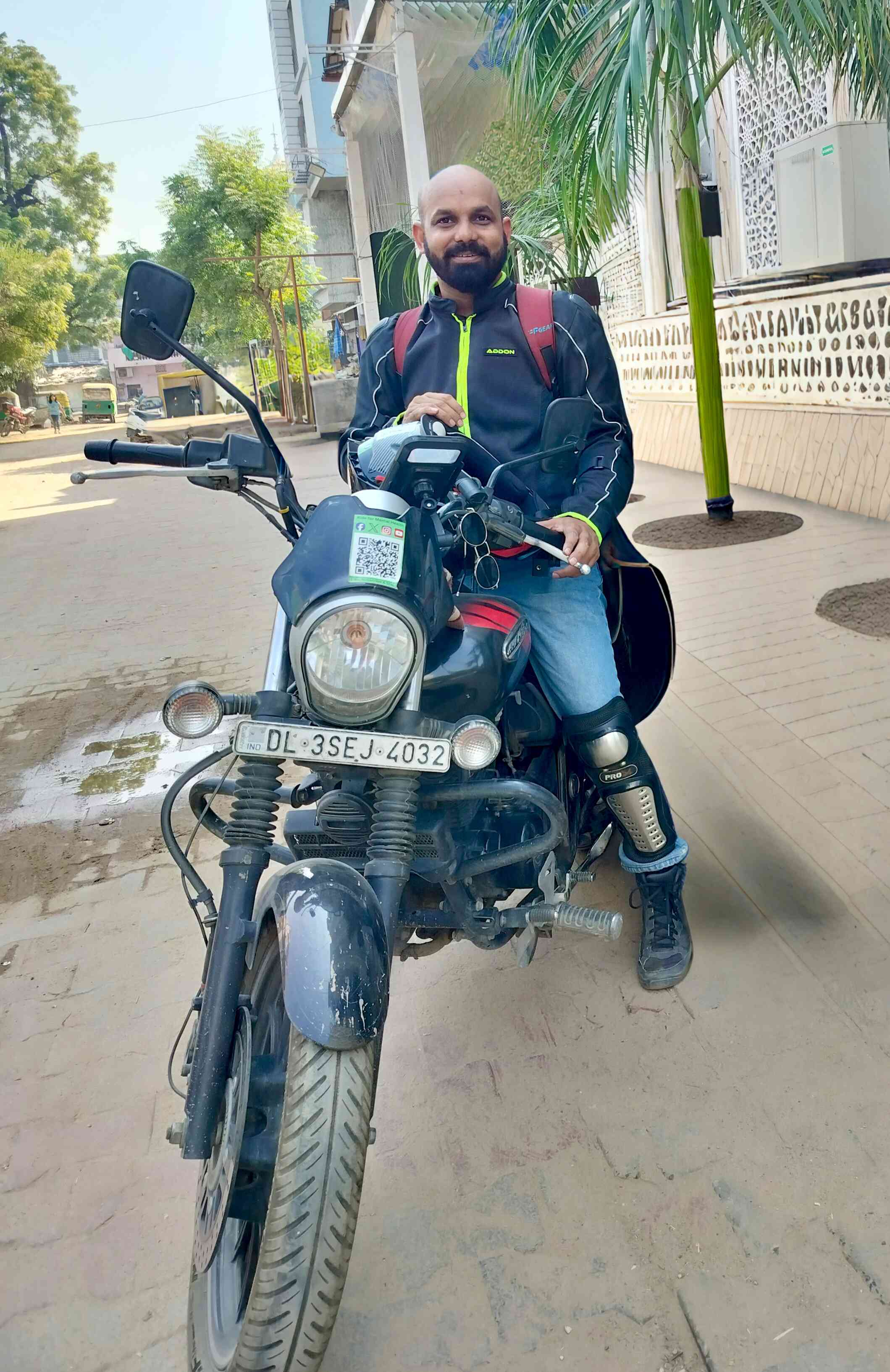
Political priorities
By the time the journey reached Kannur, one truth had become inescapable: mental health in India is profoundly shaped by political, economic, and cultural forces, but remains absent from public policy.
The people I met revealed what might better be called the unseen architecture of mental distress – the overlapping structural conditions that shape well-being. Political and religious polarisation, amplified by digital misinformation, has seeped into daily consciousness, breeding anxiety and alienation. Economic insecurity deepens this strain, while a toxic work culture and relentless overwork have normalised burnout as a way of life.
Together, these forces – economic precarity, social fragmentation, digital aggression and political fear – have converged into a structural crisis of mental well-being. Despite their reach, they are peripheral to India’s policy imagination.
Toward a politics of care
My Ride for Mental Health reaffirmed that there cannot be be healing in isolation. India needs a politics of care that treats mental health as a collective responsibility rather than a private struggle.
Policy must connect emotional well-being to employment, education, gender justice and digital ethics. Institutions must build environments where vulnerability is not weakness and where listening is as valued as speaking. Social media, too, must be reimagined as a tool for empathy rather than hostility.
Mental health is about recognising how inequality, exhaustion, and fear shape the human mind. From the activist in Rajasthan to the teacher in Kerala, one truth echoed everywhere: people are ready to talk – they only need to be heard.
This article has been written along with Asrarul Haque Jeelani.
Istikhar Ali is a DAAD fellow at Universität Göttingen and PhD scholar at Jawaharlal Nehru University.
Asrarul Haque Jeelani is Guest Faculty, Department of Social Work at Jamia Millia Islamia, New Delhi.
📰 Crime Today News is proudly sponsored by DRYFRUIT & CO – A Brand by eFabby Global LLC
Design & Developed by Yes Mom Hosting


